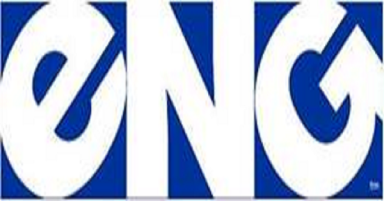Tips to help protect yourself.
As your IT - Computer Service Provider,
And more than that, your business partner...
We are happy to share these tips with you and hope it helps keep you safe from the bad guys out there.
There are so many things that we do with-out a second thought that make our computer/networks more vulnerable than you may realize.
Check back regularly and see if there is something you are doing or something you can do to protect yourself.
Be Internet Safety Conscience
This first one is going to sound like a no-brainer, but there is a lot to it. Passwords!!!!
- Make them strong (if allowed) more than 8 digits, use upper case and lower case.
- Also add numbers and special characters (if allowed) such as *,#,! Check with site rules
- If allowed, consider using an "!" where you would use an "I" or @ instead of "a". (You just added a huge number of variables a bad actor would have to try to crack your password. Enough that the site logging should see it and block it.
- Don't use common password like "password" or your birthday. (They may have gotten your birthday off of social media, but that is a tip for another day)
Don't USE THE SAME PASSWORD FOR ALL YOUR ACCOUNTS!!!
There are passwords for everything in today's digital world. And it's difficult to keep track of ALL the passwords and usernames. If you think you are the only one dealing with that, think again! Imagine us IT guys who have to help others and keep track of our own. It's a huge task. So many people resort to reusing the same password for multiple sites. True it makes it easier to remember, but here is the danger. If a "Bad Actor" gets your password for any site. You can bet he will try it on ALL your other ones as well! You can do the math from there... He will have access to any of your other accounts. Be sure to use different passwords and make them strong. Sorry to disappoint you. But life in the digital world is a hazardous place. Don't be your own worst enemy.
How to spot a possible SCAM:
Bad Actors are very successful with phone scams. So even though we are your computer partner. A word of caution on how to avoid phone scams. NEVER give any personal information out. Remember, if they are really the company they claim to be, they should have that information already. Scammers will usually be pushy. "Act now". "Limited time to do..." "We have to fix this now or else..." They try to intimidate you to acting without thinking it through, because they know if you have a minute to think you might realize it's a SCAM. Listen for a lot of backround noise. That's because often scammers are in a large room with a bunch of people speed dialing people to try and catch a victim. As far as computer SCAMS. Never click on ANYTHING in the email, until you are 100% sure it is from who they claim to be. Carefully take your mouse and go over the section where it's says from. The email should be from the company who trying to reach you (IE: lepstein@ENGTECHNICAL.COM). Often the email will be from some random address (@whatever.com). Also look closely at the logo (maybe compare it to their real site) and look for typo-graphical errors or poor wording. None of this is fool proof, but it's a start. And when in doubt, call the company it is supposed to be from and confirm. Chances are they know that they are being used for a SCAM.
PHONES CAN GET VIRUSES ALSO
Bad Actors will stop at nothing to try and get your personal information. One of the latest attempt is to text you a warnining that you have an out-standing toll and your license will be suspended along with sent to collections. This one is pretty easy to see through (just delete it), but it illustrates the need to be vigilant with what you respond to on your phone, No reputable company will ask for personal information without establishing that they are a real company. Try and geta call back number and if it's a company you have never dealt with. Hang up. If you feel you have been compromised, do contact the police (not 911) so an incident report can be logged. This may help if legal action is required. Most phones can block numbers you identify as SPAM. Lastly (not a comprehensive list) if you think your phone is virused, do not email yourself or anyone from your phone. You can infect a computer.
© Copyright 2025 ENG Technical Services, Inc. All rights reserved.
We need your consent to load the translations
We use a third-party service to translate the website content that may collect data about your activity. Please review the details in the privacy policy and accept the service to view the translations.
